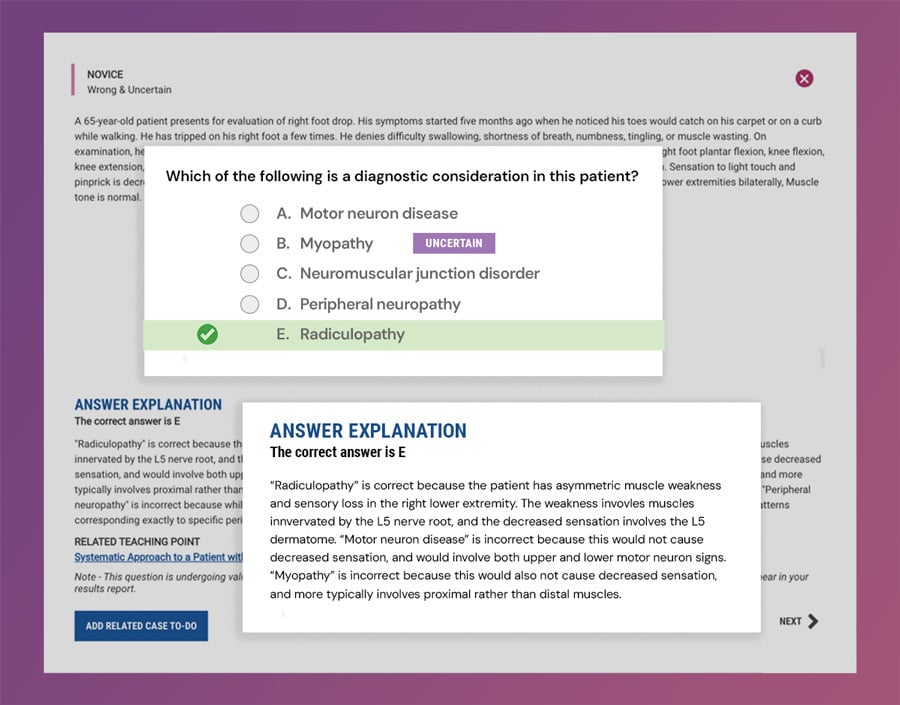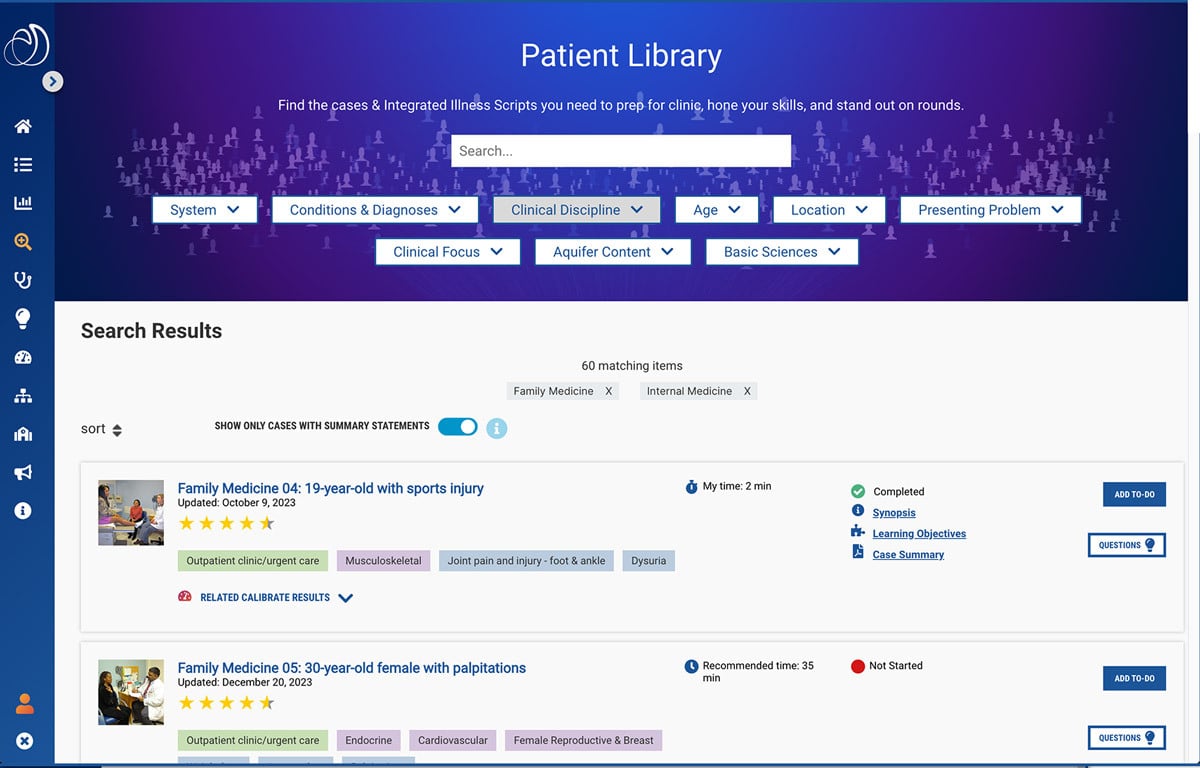FOR STUDENTS
Transform Your Performance
Our AI-enhanced platform delivers the best content and tools needed to master clinical reasoning, high-stakes exams and patient care.
Gain Mastery of Clinical Concepts
Our courses are created by the nation’s leading clinical educators and designed with your success in mind.

Aquifer’s almost 250 cases & scripts span content across core disciplines:
-
Family Medicine
40 Cases, 533 Questions
-
Geriatrics
28 Cases, 363 Questions
-
Internal Medicine
32 Cases, 497 Questions
-
Neurology
17 Cases, 258 Questions
-
Obstetrics & Gynecology
19 Cases, 68 Questions
-
Pediatrics
40 Cases, 478 Questions
-
Psychiatry
6 Cases, 10 Questions
-
Radiology
21 Cases, 341 Questions
-
Integrated Illness Scipts
40+ Scripts
Our 52 Clinical Excellence Case Sets provide students access to key topics:
-
Diagnostic Excellence
7 Cases
-
High Value Care
13 Cases
-
Palliative Care
13 Cases
-
Social Determinants of Health
3 Cases
-
Telemedicine
4 Modules
-
Trauma Informed Care
12 Cases
Ace Clinical Rotations and High-Stakes Exams

Master Clinical Reasoning
Move beyond memorization and advance your clinical decision-making skills with 40+ Integrated Illness Scripts linking basic sciences to clinical reasoning to explain the “why” behind core conditions.
Improve Clinical Decision-Making with an AI Preceptor
Aquifer’s AI preceptor provides immediate and detailed feedback on student-generated summary statements, identifying areas for improvement for better clinical reasoning and patient care.
Study Smarter with Assessments & Quizzes
Formative assessments and quizzes are a roadmap to success. Access thousands of multiple-choice questions with a certainty rating using our quiz generator. Link directly back to trusted Aquifer content for full clinical context.
Content You Can Trust
Aquifer delivers a proven, award-winning, and complete curriculum with comprehensive coverage of core clinical concepts that are written and peer-reviewed by expert medical educators.
Realistic Clinical Experiences
Virtual patient cases include results of diagnostic testing, videos, audio, and images to provide deep and realistic clinical scenarios. Gain access to patients and key conditions regardless of disruption, location, or seasonality.
Safe Space to Practice Clinical Decisions
Aquifer gives you the tools needed to identify knowledge gaps, reinforce key concepts, work at your own pace, and develop clinical reasoning and diagnoses before you’re at the bedside—building competence and confidence.
Using aquifer for case-based learning during 3rd year was very helpful as a means of practically walking through cases in a way that emulated real patient visits. I particularly liked that I’m able to get realtime feedback on my responses using the personalized AI generated feedback!

